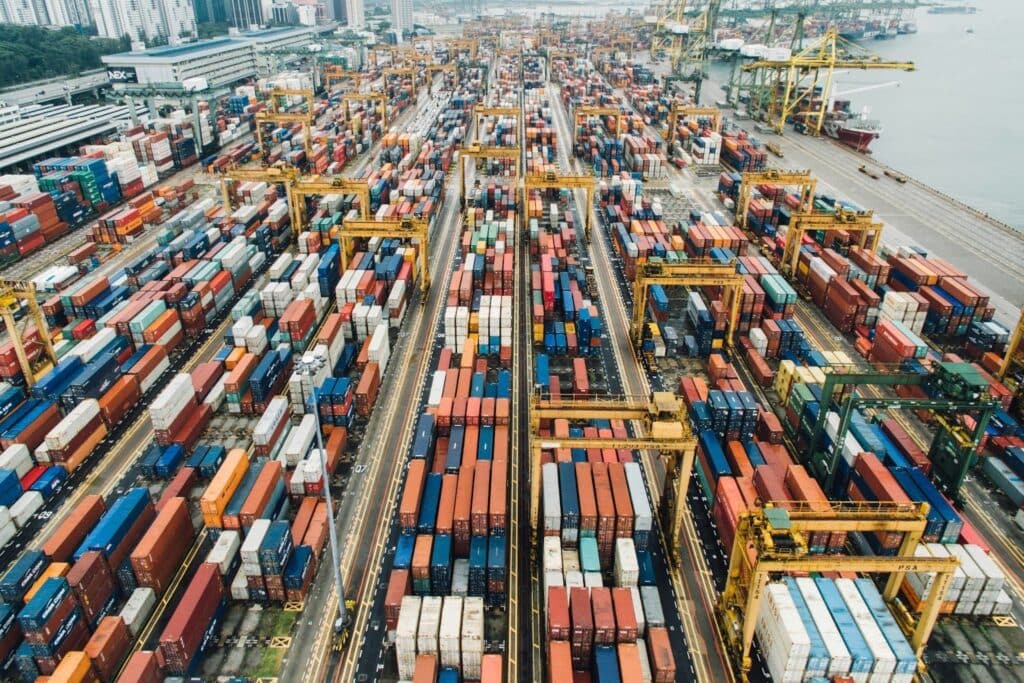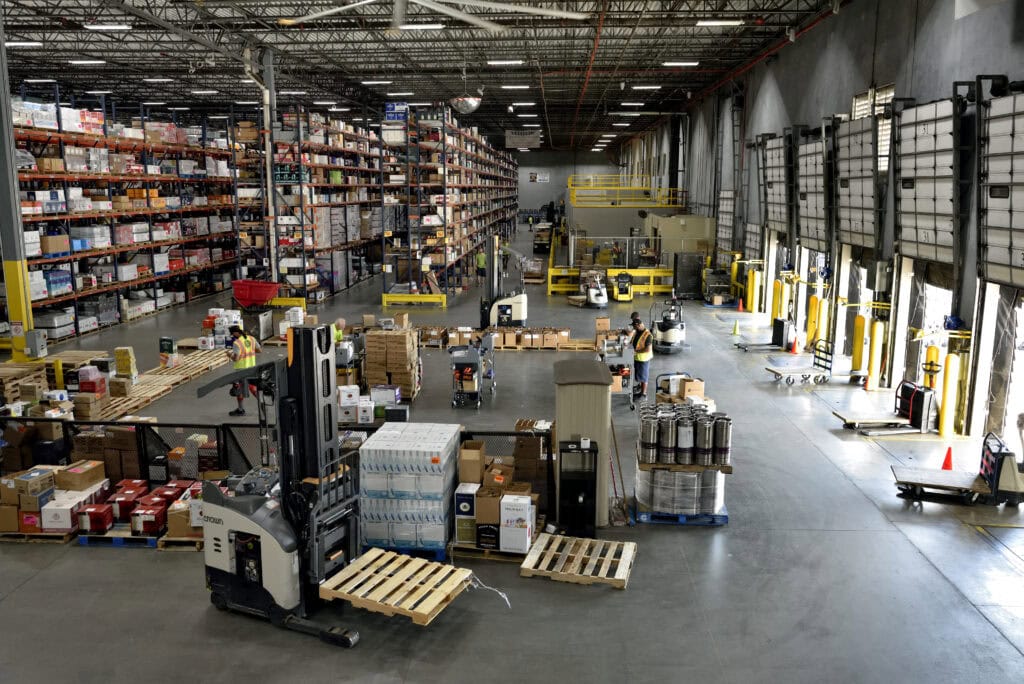Articles
Knowledge Center

Types of Cargo: Key Factors, How They’re Transported, and Handling Requirements
Cargo means goods or products moved from one place to another for cargo transportation. In the shipping industry and global trade, understanding different types of cargo helps optimize how goods reach their destination. Businesses rely on shipping companies and logistics companies to handle bulk cargo, liquid bulk cargo, general cargo, and more. Proper transport vehicles […]
Read More
Supply Chain Resilience: What It Is, Common Disruptions, and How to Build
Supply chain resilience refers to a company’s ability to prepare for, respond to, and recover quickly from unexpected disruptions. Businesses now face constant challenges like natural disasters, geopolitical risks, and the lasting impact of the COVID-19 pandemic. These events expose weaknesses in even the most efficient supply chain models. Supply chain leaders are under pressure […]
Read More
The Best Mapping Software for Location Intelligence
Choosing accurate mapping software is essential for businesses that use location intelligence. This field has seen steady growth. The global market is projected to reach $63.8 billion by 2032, with steady demand from retail, logistics, and urban planning. Maptive stands out as the best mapping software for location intelligence due to its precision, speed, and […]
Read More
Vendors vs Suppliers: The Differences and Why It Matters
Vendors and suppliers are both business entities that play different roles in the supply chain. Suppliers provide raw materials, while vendors sell finished products to other businesses or the final customer, operating in distinct capacities depending on the products’ use and sales channels. The key difference lies in what each business entity provides to the […]
Read More
Operational Risk Management: Core Principles and Practices
Modern business operations face rising complexity from cyber threats, supply chain issues, and failed internal processes. Each mistake or delay increases risk exposure and disrupts performance. Without a structured system, risks multiply fast and often without warning.
Read More
Global Supply Chain: What It Is, Importance, and Challenges
Studying the global supply chain reveals how products move from raw materials to finished goods across multiple countries. It connects manufacturing operations, distribution, and customer demand in a vast worldwide system. Many global supply chains involve complex steps and working relationships with foreign suppliers to meet the needs of international customers. Breaking down how global […]
Read More
What is Linehaul: Definition, How it Works, and Importance
What is a line haul? It refers to the transport of goods between two points, such as cities, ports, or even warehouses. Line haul transportation covers the long-distance part of the shipping process. It moves freight between hubs like sorting facilities or distribution centers, with the final destination being the endpoint of the shipping process, […]
Read More
UPC Meaning: What It Is, Types, and How to Get
Running a business today means staying organized, especially when selling products globally or across online marketplaces. Mismanaging items leads to errors, confusion, and lost sales. That’s where understanding UPC meaning becomes essential. A UPC—short for Universal Product Code—is a unique number and a type of bar code used for product identification. The barcode symbol, which […]
Read More
What is Supply Chain Forecasting? Best Methods, Benefits, and Challenges
Uncertainty hurts business. When companies don’t know what’s coming next, they overstock, underdeliver, and miss sales targets. Poor planning can wreck supply chain operations, increase costs, and frustrate customers. Supply chain forecasting refers to the process of predicting demand, supply, or pricing for products within an industry, using data from suppliers to anticipate stock availability […]
Read More
What is LIFO? Definition, Benefits, and Real World Use of Last In, First Out
Inventory valuation shapes how businesses report profits and manage taxes. The LIFO method—Last In, First Out—assigns the cost of the most recent purchases to the cost of goods sold, often reducing taxable income when prices rise. LIFO is one of several cost flow assumptions used in inventory accounting to determine how inventory costs are allocated […]
Read More
Everything You Need to Know About Demand Forecasting: Types, Methods, Benefits and Examples
Businesses need to stay ahead in a fast-moving market. Strong demand forecasting helps companies make better decisions, reduce risk, and stay ready for sudden changes.
Read More
Inventory Planning: What It Is, Importance, and Challenges
Running out of stock or holding too much inventory can ruin profit margins, cause customer dissatisfaction, and throw operations off balance. Businesses that ignore planning often face lost sales, cash issues, and wasted storage space. Whether managing a retail store, manufacturing line, or online shop, one thing is clear: inventory planning is not optional. Smart […]
Read More
Top 20 Essential Fleet Management Strategies for Maximum Efficiency and Safety
Managing a fleet without a clear plan often leads to chaos—higher fuel costs, increased vehicle downtime, and frustrated fleet managers. Strong fleet management strategies act as the foundation for smarter, safer, and more cost-effective fleet operations. These strategies cover everything from vehicle maintenance and driver behavior to fuel efficiency and operational efficiency. With the […]
Read More
Inventory Forecasting: Formulas, Methods, Benefits and How to Implement
Running out of stock during peak demand or wasting money on unsold goods can hurt both profits and customer trust. Many businesses face this challenge because they don’t forecast their inventory needs correctly. That’s where inventory forecasting steps in. Companies use different methods like EOQ and ROP to enhance their inventory management, incorporating both quantitative […]
Read More
Logistics Risk Management: What It Is, Types, and Implementation
Unexpected events can derail even the most efficient logistics network, making risk management in logistics essential. From natural disasters to supplier delays, risks pop up without warning. That’s why logistics risk management is no longer optional—it’s essential. Companies today face supply chain disruptions that can impact everything from raw materials to customer satisfaction. Identifying potential […]
Read More
Procurement Process and SCM: Processes, Types, How They Differ, and How to Integrate Them
Every business relies on suppliers to keep things moving. Without the right products or services at the right time, operations slow down, and customer satisfaction drops. That’s where procurement in the supply chain steps in—it’s not just about buying stuff; it’s about making smart, strategic decisions that drive performance. Procurement in the supply chain refers […]
Read More
Urban Warehousing: What It Is, Characteristics, and Benefits
Last-mile delivery has become a serious challenge for many businesses. Online shopping is growing fast, but getting products from warehouses to customers in urban areas is harder than ever. Roads are packed, customer expectations are high, and delays lead to lost sales. As cities grow and e-commerce booms, the demand for effective urban warehousing solutions […]
Read More
What is a Vendor in the Supply Chain: Types, Key Responsibilities, and Financial Considerations
Running a successful supply chain starts with one question: What is a vendor? Vendors are essential to supply chain success. They are business entities that supply goods or services to other businesses or individual consumers. To describe their role more clearly, a vendor is specifically the party that is paid for goods and services, distinguishing […]
Read More
What Is a Consignee in Shipping?
In every international shipping process, someone must take ownership of the goods once they arrive. That person or business is known as the consignee, who must be present to accept the shipment. The consignee’s address must be accurately mentioned on shipping documents to ensure smooth transactions and deliveries. So, what is a consignee? A consignee […]
Read More
What Is a Bonded Warehouse? Why It Matters More Than Ever in Global Logistics
Whether you’re expanding to new markets, trying to manage costs, or simply looking to strengthen your logistics strategy, bonded warehousing deserves a closer look.
Read More